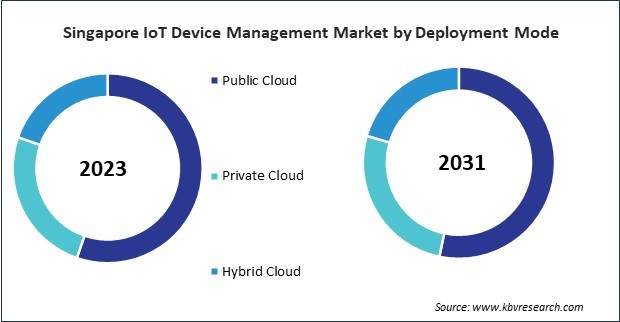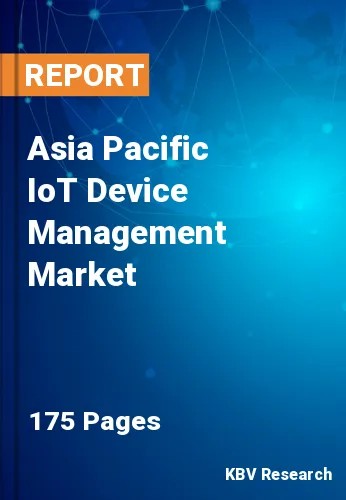The Asia Pacific IoT Device Management Market would witness market growth of 31.7% CAGR during the forecast period (2024-2031).
The China market dominated the Asia Pacific IoT Device Management Market by Country in 2023, and would continue to be a dominant market till 2031; thereby, achieving a market value of $2,042.7 million by 2031. The Japan market is expected to witness a CAGR of 30.9% during (2024 - 2031). Additionally, The India market would register a CAGR of 32.6% during (2024 - 2031).

The adoption of IoT devices across industries has grown at an unprecedented pace, driven by the promise of improved efficiency, cost savings, and enhanced customer experiences. For instance, in the healthcare sector, IoT devices such as wearable health monitors, connected diagnostic tools, and remote patient monitoring systems play a critical role in modernizing healthcare delivery. Similarly, manufacturing has embraced IoT to enhance operations through predictive maintenance, process automation, and real-time monitoring. Industrial IoT (IIoT) devices embedded in machinery collect valuable performance data, allowing manufacturers to proactively predict equipment failures and schedule maintenance.
Industries such as healthcare and smart cities further illustrate the importance of IoT security. In healthcare, connected medical devices like insulin pumps and pacemakers store sensitive patient data and require constant monitoring to prevent breaches, as evidenced by vulnerabilities discovered in Medtronic’s insulin pumps in 2019. Smart cities like Singapore protect their IoT systems in traffic management and energy grids through advanced device management platforms, ensuring reliability and public safety. Additionally, consumer IoT devices, such as wearables and smart home appliances, benefit from solutions like Apple’s HomeKit, which employs encryption to secure user data. With the integration of AI and ML, IoT device management platforms can now detect anomalies and respond to threats proactively, further strengthening security in an increasingly connected world.
China, the world’s largest manufacturing hub, represents a major market for IoT device management. The steady growth of its manufacturing sector, with a 4.6% year-over-year increase in value-added industrial output in 2023, underscores the importance of IoT in optimizing production processes and logistics. The country’s pivotal role in global trade necessitates robust IoT management solutions to facilitate efficient cross-border shipping and customs processes. Therefore, with industries increasingly relying on IoT for data-driven decision-making, the demand for secure and scalable IoT device management systems is expected to grow significantly across the Asia Pacific region.
Free Valuable Insights: The Global IoT Device Management Market is Predict to reach USD 25.38 Billion by 2031, at a CAGR of 30.8%
Based on Organization Size, the market is segmented into Large Enterprises, and Small and Medium Enterprises (SMEs). Based on Component, the market is segmented into Solution (Real-Time Streaming Analytics, Security Solutions, Remote Monitoring, Device Management, and Network Bandwidth Management), and Services (Professional Services, and Managed Services). Based on Deployment Mode, the market is segmented into Public Cloud, Private Cloud, and Hybrid Cloud. Based on Vertical, the market is segmented into Manufacturing, Transportation & Logistics, Retail, Healthcare, Utilities, and Other Vertical. Based on countries, the market is segmented into China, Japan, India, South Korea, Singapore, Malaysia, and Rest of Asia Pacific.
By Organization Size
By Component
By Deployment Mode
By Vertical
By Country
Our team of dedicated experts can provide you with attractive expansion opportunities for your business.

